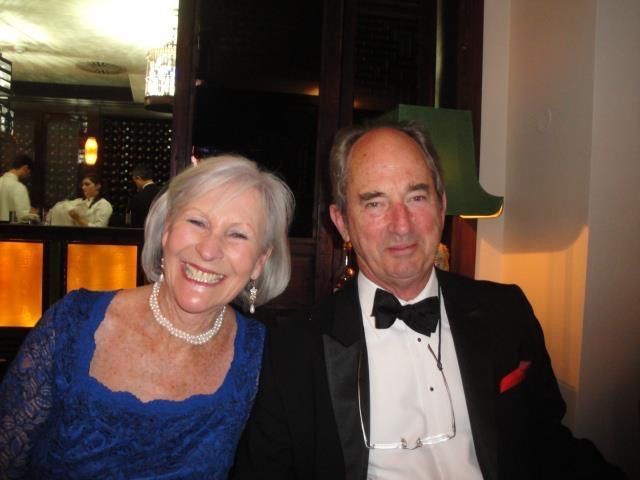“He was brave to the end” says wife of man treated for three types of leukaemia in Dorset hospital
“He was brave to the end” says wife of man treated for three types of leukaemia in Dorset hospital

Two Somerset women have spoken out about the devastation they have experienced from the disease to mark World Acute Myeloid Leukaemia (AML) Day [Friday 21st April].
Sue De Boehmler lost her beloved husband Stan to three leukaemias, one of which was AML. He was treated in hospital in Dorset. Primary school head teacher Lisa Thompson hopes to soon return to work after four grueling courses of chemotherapy (case studies below).
Blood cancer charity Leukaemia UK is raising awareness of the signs and symptoms of Acute Myeloid Leukaemia (AML), a devastating disease that claims over 2,600 lives each year in the UK and has a 5-year survival rate of just 15.3%.
AML is a type of blood cancer which can affect anyone of any age, though it is most common in the over-60s. The word ‘acute’ in the name indicates that the disease may progress very quickly, and usually requires immediate treatment. Common symptoms include fatigue, bruising or bleeding, and repeated infections. Other symptoms can include feeling weak or breathless, fever or night sweats, and bone or joint pain. A blood test is the only way to conclusively pinpoint the disease.
Thanks to progress made in research over the past 40 years, the overall five-year survival rate for leukaemia has increased from 13% to around 50% - but the five-year survival rate for AML has remained at just 15.3%, despite being the second most common type of leukaemia. This World AML Day, Leukaemia UK is calling on the public to help fund more research, which is desperately needed to stop the disease devastating so many lives in future.
Fiona Hazell, Chief Executive of Leukaemia UK, said: “Important discoveries are happening all the time within leukaemia research. Whilst survival rates in AML are still nowhere near where they should be and treating this disease remains difficult, at Leukaemia UK we know that we can help change this as research has the power to one day stop leukaemia devastating lives.”
Leukaemia UK is investing in life changing research into kinder, more effective treatments for AML and other types of blood cancer, which is the UK’s third deadliest form of cancer. Leukaemia UK funded researcher, Dr Konstantinos Tzelepis, is already advancing progress towards a possible new treatment for AML. In research partly funded by Leukaemia UK, Dr Tzelepis and his research team discovered a new drug, which targets a key protein involved in AML growth and survival. This protein, called METTL3, is found in most of the cells of our bodies, but in AML is found in much higher levels. The newly discovered drug aims to block METTL3 to destroy cancer cells and is currently being tested as part of a US-based clinical trial.
Whilst research into AML continues, Leukaemia UK urges the public to remain alert to the potential signs and symptoms of the disease and to seek visit their GP if they suspect something is wrong. As the signs and symptoms of AML are similar to those of other, more common conditions, patients often aren’t diagnosed until A&E.
“As with many diseases, earlier diagnosis improves the chances of successful treatment,” said Fiona Hazell. “At Leukaemia UK we hear from many patients who have received the devastating diagnosis of AML who say they wish they had put together their pattern of symptoms earlier. We want to encourage people to trust their instincts when something is wrong and visit their GP to push for that all important blood test, which is the only way to properly diagnose AML.”
To find out more, including how you could help support the life-changing research that Leukaemia UK funds, and the charity’s advocacy work, visit leukaemiauk.org.uk.


